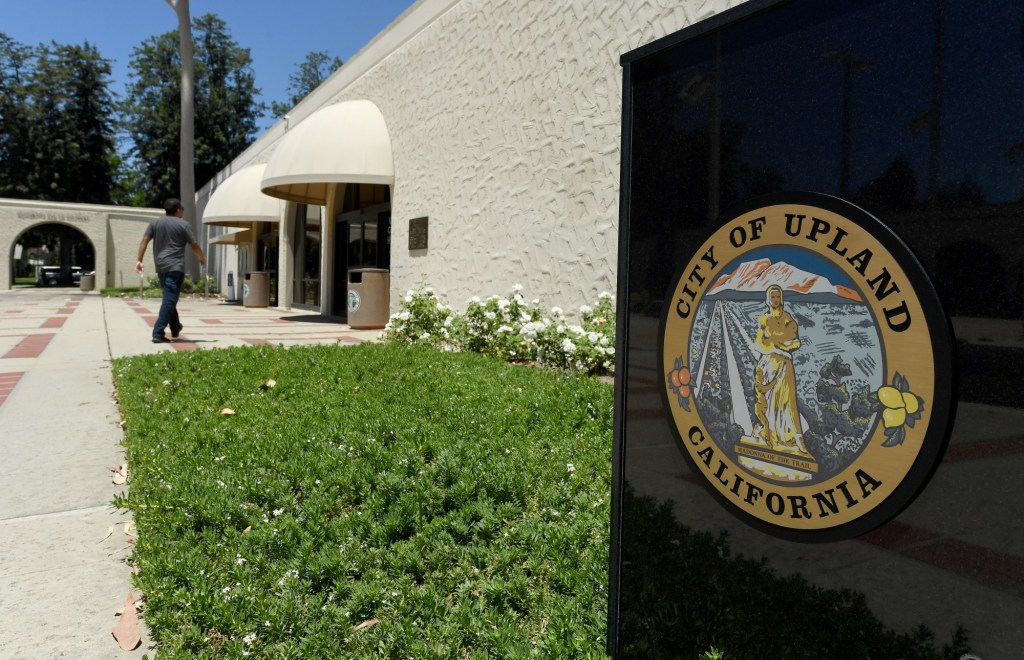
It’s getting so hard for people in California to pay their utility bills that cities are turning to a blunt instrument: tax roll billing, otherwise known as, “Pay, or the county will sell your house.”
That’s the message to property owners from the City of Upland, where residents were recently informed that the city plans to stop billing directly for storm drain, solid waste and sewer services. Instead of the city sending out bills every two months, Upland residents will see the charges on their San Bernardino County property tax bills.
According to the City of Upland’s Public Works Committee, tax roll billing “simply utilizes an existing, proven industry-wide ‘best practice’ for revenue collection.”
Translation: the county can seize and sell a property if the owner falls behind on property tax bills.
Of course, everyone is responsible for paying the fees that they owe. But what is the responsibility of government officials to ensure that the cost of city services remains reasonable and affordable?
As it turns out, there is no responsibility whatsoever to ensure that the cost of city services remains reasonable and affordable. Instead, there is a responsibility to “meet regulatory compliance.”
That’s where they get you.
Regulators implement laws, and the cost is always somebody else’s problem. For example, the Legislature passed a law in 2016, signed by Gov. Jerry Brown, that mandated a 75% reduction in the disposal of organic waste in landfills from the 2014 level by 2025. Now that it’s 2025, trash collection fees are rising to cover the additional costs of sorting and processing trash in order to “meet regulatory compliance.”
But when the bill arrives, the long-gone politicians don’t get the blame. People are instead angry at the trash contractors or the local politicians. Tax roll billing nicely serves to divert anger, because the delinquency notice will come from the county tax collector’s office. Everybody else makes a clean getaway.
Residents reading their county tax bill probably won’t think to ask who made the decisions that drove up the costs of city services. No one will remember that regulators forced cities to pay for composting food waste or replacing truck fleets, or that stormwater regulators edged some number a little bit lower and caused counties to have to build costly new infrastructure, all billed to ratepayers.
It’s so much easier for city officials if the county simply seizes the property of people who get the bill for these decisions and can’t afford to pay it.
When laws and regulations drive up the cost of utilities to the point where huge numbers of Californians can’t keep up with the bills, the government’s response has not been to rethink the blithering idiocy that caused the problem. Instead, the Legislature has responded by forbidding utilities to cut off service.
Senate Bill 998, the Water Shutoff Protection Act, was signed into law by Gov. Brown in 2018. It imposed limits on when and how a water supplier could shut off service for non-payment. Its implementation was interrupted by a complete statewide moratorium on water shutoffs during the COVID pandemic.
Of course, state law forbids cities from shutting off sewer or trash service. The only enforceable method of collection was to place delinquent bills on the county tax roll.
But with tax roll billing, city officials don’t have to cast an awkward vote to place delinquent bills on the county tax roll. Every bill is on the county tax roll. The county sells the homes of those who fall behind.
How many people are in financial distress from the escalating cost of once-affordable city services? In Upland, residents are $463,802 behind on their trash bills and $538,894 on their sewer bills.
How many cities have turned to tax roll billing? The presentation in Upland listed 16, including Newport Beach, Riverside, San Bernardino, Placentia, Rialto, Claremont, Fontana, Ontario, Fresno and Stockton.
Much of this is the consequence of California’s self-important “leadership” on climate change policy, without any realistic cost-benefit analysis of regulations, without any accountability for the impact on ratepayers.
And this is the result: cities collecting rising utility bills from financially strapped residents using the threat of forced tax sales of people’s homes. It’s the California Way.
Write Susan@SusanShelley.com and follow her on X @Susan_Shelley
Originally Published:



